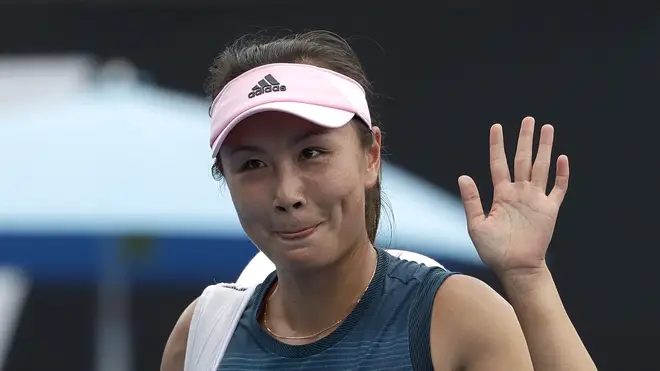
Ben Kentish 10pm - 1am
30 November 2021, 16:44

Peng Shuai dropped out of public view after accusing a former Communist Party official of sexual assault.
The European Union wants China to release “verifiable proof” that tennis player Peng Shuai is safe and to conduct a thorough and transparent investigation into her sexual assault allegations.
Peng, a three-time Olympian and former top-ranked doubles player, dropped out of public view after accusing a former Communist Party official of sexual assault.
She has only had a few direct contacts with officials outside China since she disappeared from public view earlier this month.
Peng told Olympic officials in a November 21 video call from Beijing that she was safe and well.
However, an EU spokesperson said: “Her recent public reappearance does not ease concerns about her safety and freedom.”

Peng made the sexual assault allegation online against a former member of the Communist Party’s ruling Standing Committee, Zhang Gaoli.
The tennis player’s post was removed within minutes, and she subsequently stopped appearing in public.
“The EU joins growing international demands, including by sport professionals, for assurances that she is free and not under threat,” the EU said in a statement.
“In this spirit, the EU requests the Chinese government to provide verifiable proof of Peng Shuai’s safety, well-being and whereabouts.
“The EU urges the Chinese authorities to conduct a full, fair and transparent investigation into her allegations of sexual assault.”
Peng adds to a growing number of Chinese businesspeople, activists and ordinary people who have disappeared from public view in recent years after criticising party figures, or vanished amid crackdowns on corruption or pro-democracy and labour rights campaigns.
“The EU strongly opposes the use of the practice of enforced disappearance and arbitrary detention … and calls upon China to comply with its human rights obligations under national and international law,” the EU said.